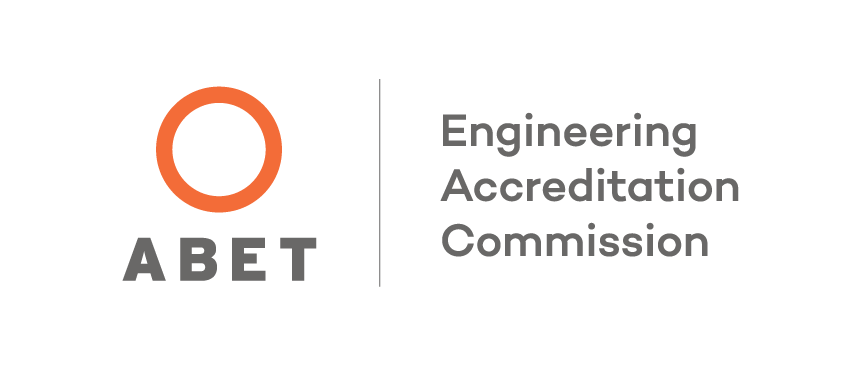Bachelor of Science in Industrial Engineering
-
Graduates will be able to identify, define and implement effective solutions to real cases in the manufacturing and service systems by applying industrial engineering sciences and tools, contemporary knowledge and cutting-edge technologies.
-
Graduates will be able to update their professional skills continuously to design integrated production systems of people, machines, information, energy, materials and financial resources.
-
Graduates will be able to communicate and work effectively and ethically as individuals and as team members.
-
Graduates will be able to assume leadership roles in their profession and communities.
The above program educational aims are achieved through assessing the program learning outcomes. The learning outcomes are represented by set of abilities and knowledge that will be gained by the student and that will be reflected in handling his career work. The student outcomes are:
SO1. An ability to identify, formulate, and solve complex engineering problems by applying principles of engineering, science, and mathematics.
SO2. An ability to apply engineering design to produce solutions that meet specified needs with consideration of public health, safety, and welfare, as well as global, cultural, social, environmental and economic factors.
SO3. An ability to communicate effectively with a range of audiences.
SO4. An ability to recognize ethical and professional responsibilities in engineering situations and make informed judgments, which must consider the impact of engineering solutions in global, economic, environmental, and societal contexts.
SO5. An ability to function effectively on a team whose members together provide leadership, create a collaborative and inclusive environment, establish goals, plan tasks, and meet objectives.
SO6. An ability to develop and conduct appropriate experimentation, analyze and interpret data, and use engineering judgment to draw conclusions.
SO7. An ability to acquire and apply new knowledge as needed, using appropriate learning strategies.
|
1.0
|
Knowledge:
|
|
1.1
|
Gain and apply the knowledge of engineering fundamentals, basic sciences (including, mathematics, physics, probability and statistics, chemistry), Islamic, Arabic, English, and social sciences appropriate to IE. (a)
|
|
1.2
|
Demonstrate the impact of IE solutions on society, economy, and environment with ability to illustrate the importance of sustainable development. (h)
|
|
1.3
|
Demonstrate the ability to understand and use the knowledge of contemporary issues. (j)
|
|
2.0
|
Cognitive Skills:
|
|
2.1
|
Identify, formulate, analyze and solve Problems in Industrial engineering. (e)
|
|
2.2
|
Conduct experiments in IE, interpret and analyze results and be able to draw conclusions. (b)
|
|
2.3
|
Design, develop, implement, and improve a process, product, and system under realistic constraint. (c)
|
|
2.4
|
Demonstrate the ability to use the techniques, skills and modern tools for engineering practice. (k)
|
|
3.0
|
Interpersonal Skills & Responsibility:
|
|
3.1
|
Apply Islamic ethical principles, legal, and norms of engineering practice to understand professional and ethical responsibility. (f)
|
|
3.2
|
Demonstrate the ability to work effectively as a team member or a leader to accomplish a common goal. (d)
|
|
4.0
|
Communication, Information Technology, Numerical:
|
|
4.1
|
Show the ability to engage in continuing professional development and lifelong learning. (i)
|
|
4.2
|
Show the ability to communicate effectively with a range of audiences. (g)
|
- Planning ability of production systems (Manufacturing and service): Possess the knowledge and skills of the industrial planning, modeling, analysis and decision making for achieving strategies and operations plans for production systems.
- Design ability of production techniques for production systems (manufacturing and service): Possess the knowledge and skills to determine the appropriate production processes, equipment, tooling, and timing needed to design and to execute the production.
- Design ability of production systems (manufacturing and services): Possess the knowledge and skills of design work stations, work areas, production linesو handling systems, integrated manufacturing systems, and industrial facilities and specification.
- The ability to design and develop products (commodity and service): Possess the knowledge and skills to identify customer requirements, product specifications, product components and functions, methods of improving and developing the product value, and prototyping of product modeling.
- The ability to design and implement the working methods and human factors: possess the knowledge and skills of analysis and measurement of human effort (mental and muscular), the link between man and machine, analysis of the various work elements movements and calculate the standard times, and determine the worker performance rate the productivity.
- Ability to estimate and analyze the industrial and engineering costs: Possess knowledge and skills to study the productive labor economics and determine the cost and the pricing of the product.
- Ability to design and implement quality systems Possess knowledge and skills to create quality control maps and how to use them in the diagnosis quality problems, to determine the acceptable samples in the quality, to identify the process capabilities, to apply quality management systems.
- Ability to design and operate maintenance systems: Possess knowledge and skills to analyze the types of malfunctions and sequence of components in the system, to conduct engineering analysis of the amount and frequency of failures of the components of the system, to design of system reliability, to plan and schedule maintenance operations, and forecast and determine maintenance resources.
- Ability to design and implement safety systems: Possess the knowledge and skills to analyze risks in the work environment, to find engineering solutions and selecting protection and hazards prevention equipment and systems, to determine the conditions and procedures of safety, and to develop safety plans.
Industrial Engineering Bachelor Program_Study Plan: /sites/engineering.ksu.edu.sa/files/imce_images/ie_bsc_plan_0.pdf
Industrial Engineering Courses Description: /sites/engineering.ksu.edu.sa/files/imce_images/wsf_lmqrrt_ldrsy_gsts_2019.pdf
Industrial Engineering Department Booklet_IE Booklet Updated in 2021: /sites/engineering.ksu.edu.sa/files/imce_images/ie_booklet_updated_2021.pdf
The Bachelor of Science Program in Industrial Engineering is accredited by the Engineering Accreditation Commission of ABET, http://www.abet.org.

